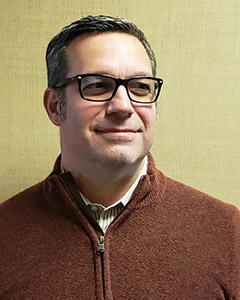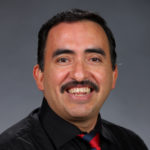
(Photo: USDA)
For many years, dedicated leaders and experts on broadband have worked collectively in regions throughout the state to bring adequate broadband service to those without it. Known as the Regional Broadband Consortia, these groups have functioned at the local and regional levels to champion and support broadband deployment projects and services.
Given the state’s recent historic investments aimed at resolving California’s digital crisis, the Regional Consortia are now poised to play an influential role in implementing these new measures. During the 2021 California Economic Summit November 9-10 in Monterey, the Regional Consortia will be a focus of the “Ensuring Broadband for All” Work Group.
In recent months, state leaders have approved new broadband investments at levels not seen before, including:
- Historic budget legislation approved by the Legislature and signed by Governor Newsom in July to invest $6 billion in broadband infrastructure, including a public open-access middle-mile network and last-mile investments.
- Two companion bills, SB 4 introduced by Senator Lena Gonzalez and AB 14 by Assemblymember Cecilia Aguiar-Curry, which were approved by the Legislature on September 9 and sent to the governor.
Together, SB 4 and AB 14 were designed to extend the existing surcharge on intrastate telecommunications services to support the work of the California Public Utilities Commission through the California Advanced Services Fund. Under this legislative package, the CPUC could authorize collection of up to $150 million per year from the surcharge between January 1, 2022, and December 31, 2032, to advance deployment and adoption of broadband services in unserved and underserved communities. Five accounts within CASF are slated to receive this funding: The Rural and Urban Regional Broadband Consortia Grant Account, which funds operation of the Regional Consortia; the Infrastructure Grant Account; the Broadband Public Housing Account; the Broadband Adoption Account; and the Federal Funding Account.
These accounts have established a strong foundation for progress and will be critical to successful implementation of the new $6 billion allocation for infrastructure. The Regional Consortia anticipate being active players in advancing broadband solutions tailored to their unique demographics, geographies, and organizational structures.
“The Regional Consortia play a valuable and often unseen role in elevating broadband as a civic priority,” said Trish Kelly, managing director of Valley Vision, which manages the Connected Capital Area Broadband Consortium covering Sacramento, Sutter, Yolo, and Yuba Counties.
Kelly serves as one of the three California Economic Summit “Ensuring Broadband for All” work group leads. The other leads are Jason Schwenkler, executive director of the North State Planning and Development Collective who leads the Upstate and Northeastern California Connect Consortia serving 10 counties in northeastern California, and Eduardo Gonzalez, executive director of the Fresno State Office of Community and Economic Development who leads the San Joaquin Valley Regional Broadband Consortium.
The California Advanced Services Fund operates under a statutory obligation to make adequate, reliable broadband available to 98% of the households in each of the state’s 17 broadband consortia regions by 2022. The California Emerging Technology Fund (CETF) was instrumental in their creation and support. (See this report, page 24.)
Although strong progress has been made, the statutory goal will not be reached by 2022 due in part to systemic challenges and pandemic-related impacts. Thus, the need for the capacity and expertise of the Regional Consortia continues. According to the CPUC, 12 consortia have been active in recent years and a new consortia for the Los Angeles region recently was approved by the CPUC. The applicant, Los Angeles County Economic Corporation (LAEDC) and its partner, UNITE-LA, are members of the California Stewardship Network.
As the CA FWD Action Fund noted in a recent letter of support for AB 14 and SB 4, “The work of the Regional Consortia is rarely splashy or headline-grabbing. But in region after region, these hard-working groups, which are filled with dedicated individuals who know their communities and understand the technical realm of broadband, have logged consistent wins for closing the Digital Divide.”
This work has included mapping, speed testing and outreach to identify priority areas and cost-effective strategies to reach the 98% goal; identifying projects and working with Internet service providers to expand infrastructure and service offerings; addressing policy barriers; inventorying public assets for use in deployment; developing resources to expedite investments; and advancing broadband as a green strategy.
During this year’s Summit, the Ensuring Broadband for All work group will explore ways that California Forward and the Summit can support the work of the Regional Consortia, including leveraging the knowledge and tools of these important regional partners as new funding flows out to local governments during the coming years.
AT A GLANCE: THE SUMMIT’S BROADBAND FOR ALL WORK GROUP LEADS
Trish Kelly, Managing Director, Connected Capital Area Broadband Consortium. Serving Sacramento, Sutter, Yolo and Yuba Counties
- What are the unique challenges in your area?
-
- Rural: Big gaps in coverage makes it challenging to adopt cutting edge ag technologies
- Urban: Not unique, but high gaps in underserved disadvantaged communities with aging infrastructure, lack of devices, and affordability and digital literacy challenges that weren’t apparent till the pandemic.
-
- What are some of your key local initiatives and successes?
- Yolo CountyAgTech Pilot
- Being embedded in the region’s economic Prosperity Strategy, and aligned with transportation infrastructure priorities.
- Partnerships with CETF, including development of new resource guide and CalTrans Strategic Corridors project.
- How is the broadband situation in your home?
- Pretty good. Cell phone coverage is not always great. I often have to go outside to get a signal.
- What do you recall about your first Internet encounters?
- The importance of broadband became clear to me when we did a statewide rural economic vitality summit in 2005 and broadband was one of the highest needs for rural regions. It took me years to understand what the speed levels meant – i.e. 6 down / 1 up.
- What is the single most important thing we can do to advance broadband for all?
- Ensure the state’s investments build a robust middle mile network to reach the hardest to serve and connect everyone statewide. Enough with the constant challenges to projects – the time is now to make this happen!
Jason Schwenkler, Executive Director of North State Planning and Development Collective who leads Upstate and Northeastern California Connect Consortia; Serving 10 counties in Northeast California
- What are the unique challenges in your area?
- Distance to population centers.
- What are some of your key local initiatives and successes?
- Middle mile infrastructure is finally a priority.
- Local governments are ready to engage.
- How is the broadband situation in your home?
- Unreliable.
- What do you recall about your first Internet encounters?
- Go make a snack while it loaded. But the resources available were overwhelming.
- What is the single most important thing we can do to advance broadband for all?
- Keep the focus on the “all.” We need to make sure all citizens have access to appropriate speeds and reliability.
Eduardo Gonzalez, Executive Director of the Fresno State Office of Community and Economic Development who leads the San Joaquin Valley Regional Broadband Consortium, serving Kern, Tulare, Kings, Fresno, Madera, Merced, Stanislaus and San Joaquin counties
- What are the unique challenges in your area?
- Lack of broadband infrastructure in rural areas of the San Joaquin Valley.
- What are some of your local initiatives and successes?
- Open access middle mile.
- Increase availability of broadband infrastructure in agricultural industry.
- How is the broadband situation in your home?
- Urban areas great. Rural areas unreliable.
- What do you recall about your first Internet encounters?
- Having to shout, “I’m on the internet. Please don’t use the phone!”
- What is the single most important thing we can do to advance broadband for all?
- Remember that it is an equitable issue and a basic necessity for all Californians.




